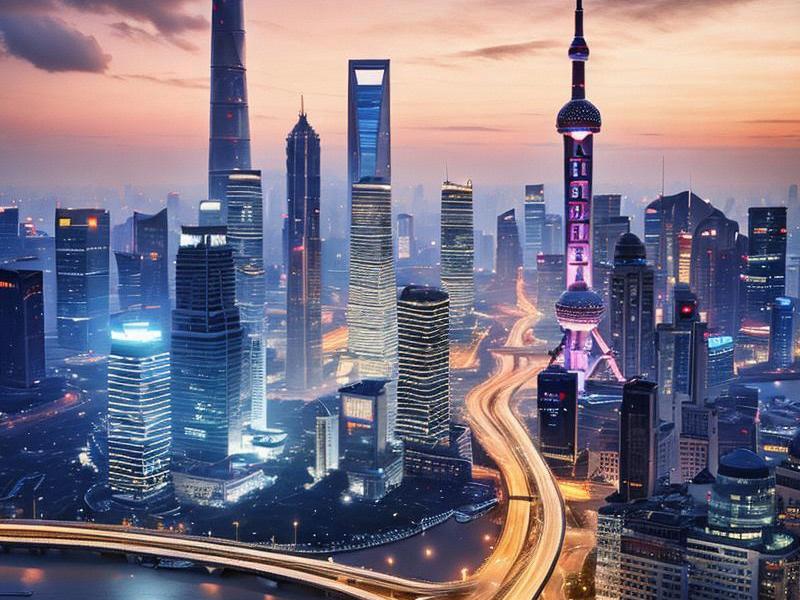This article delves into the multifaceted character of Shanghai, exploring its role as a global hub for innovation, its rich cultural tapestry, and its ongoing urban and economic transformation. As one of the world's most dynamic cities, Shanghai stands at the crossroads of tradition and modernity, making it a fascinating subject for analysis.

Shanghai, often referred to as the "Pearl of the Orient," is a city that has witnessed centuries of change and transformation. Once a small fishing village, it has grown into a sprawling metropolis that is a beacon of China's economic and cultural rise. Today, Shanghai is not only a key player in the global economy but also a vibrant center for art, fashion, and innovation.
The city's strategic location on the banks of the Yangtze River Delta has been instrumental in its growth. Shanghai serves as a major port, facilitating trade and commerce with the rest of the world. Its well-connected transportation network, including the world's busiest container port and a highly efficient metro system, makes it a logistics powerhouse.
In recent years, Shanghai has made significant strides in innovation and technology. The city is home to several high-tech zones, such as Zhangjiang Hi-Tech Park, which houses cutting-edge research institutions and startups. These areas have attracted talent from around the globe, fostering a culture of creativity and entrepreneurship. Shanghai's commitment to innovation is evident in its initiatives to develop artificial intelligence, biotechnology, and green energy technologies.
The city's cultural scene is equally vibrant. Shanghai's blend of traditional Chinese culture and Western influences is reflected in its architecture, cuisine, and arts. Iconic landmarks like the Bund and the French Concession showcase the city's colonial past, while modern skyscrapers like the Shanghai Tower and the Oriental Pearl Tower symbolize its contemporary aspirations.
上海花千坊419
Shanghai's art scene is thriving, with galleries, theaters, and music venues offering a diverse range of cultural experiences. The city hosts numerous international festivals, including the Shanghai International Film Festival and the Shanghai World Expo, which attract millions of visitors each year. These events not only showcase Shanghai's cultural richness but also enhance its global profile.
The culinary scene in Shanghai is a testament to the city's cosmopolitan nature. From traditional Shanghainese dishes like xiaolongbao (soup dumplings) and shengjianbao (pan-fried buns) to international cuisines, the city offers a gastronomic adventure for every palate. The bustling night markets and elegant restaurants provide a unique dining experience that reflects the city's dynamic spirit.
Shanghai's urban development is a model of modernization and sustainability. The city has implemented various initiatives to improve the quality of life for its residents, including green spaces, public transportation, and smart city technologies. The Bund's transformation into a pedestrian-friendly area with parks and promenades is a prime example of how Shanghai balances urban growth with environmental considerations.
上海夜网论坛
The economic transformation of Shanghai is remarkable. Once dominated by manufacturing, the city has shifted its focus to services and high-tech industries. Financial services, trade, and tourism are now the backbone of Shanghai's economy. The city's free trade zone has attracted numerous multinational corporations, making it a hub for international business.
Shanghai's role in China's economic reform is pivotal. As one of the first cities to open up to foreign investment, it has served as a testing ground for various policies aimed at modernizing the Chinese economy. The city's success story is often cited as an example of the potential benefits of economic liberalization.
However, Shanghai's rapid development is not without challenges. The city faces issues such as housing shortages, traffic congestion, and environmental concerns. To address these challenges, the government has implemented measures to promote sustainable urban development. Initiatives like the construction of green buildings, the expansion of public transportation, and the promotion of electric vehicles are part of Shanghai's strategy to crteeaa more livable city.
上海喝茶服务vx
The future of Shanghai looks promising, with continued investments in innovation, infrastructure, and cultural development. The city aims to enhance its global competitiveness by fostering a more innovative and inclusive environment. Shanghai's vision for the future includes becoming a global center for science and technology, a leader in sustainable urban development, and a cultural capital that celebrates its heritage while embracing the future.
In conclusion, Shanghai is a city of contrasts and opportunities. Its ability to blend tradition with modernity, innovation with sustainability, and culture with commerce makes it a unique and dynamic urban center. As Shanghai continues to evolve, it remains a symbol of China's aspirations and a model for other cities around the world.